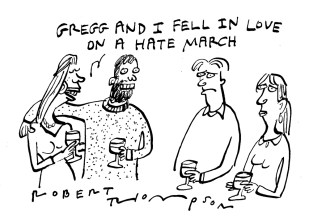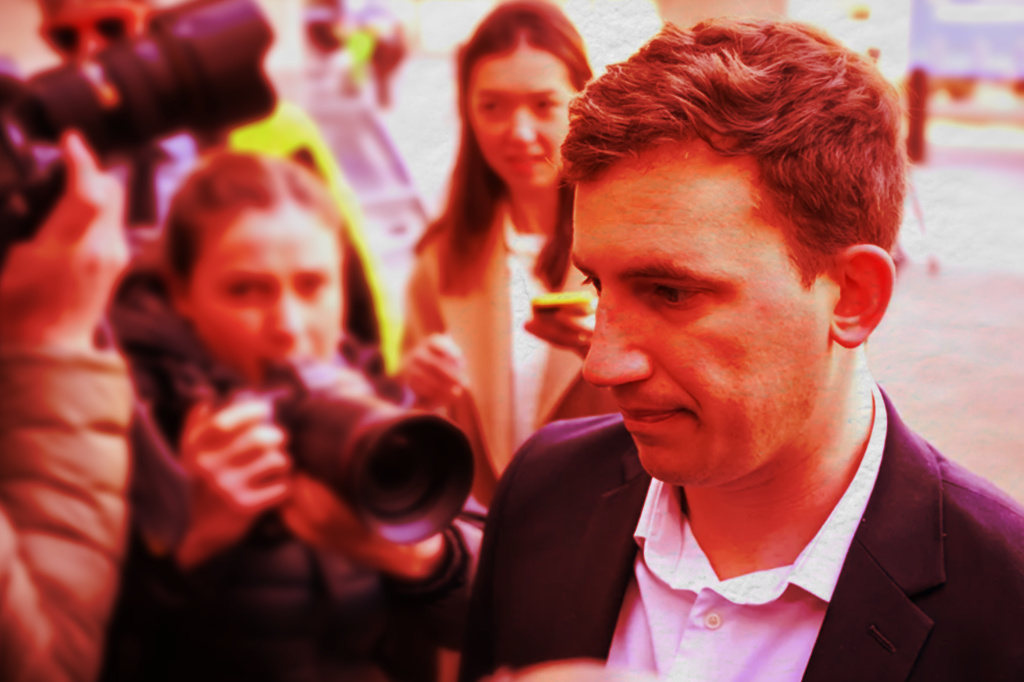
Can you be a spy by mistake? If, with no treacherous intent, without ever intending to disadvantage your own country, you share information which might give another country advantage over yours, are you spying for that country? In ordinary usage I’d answer these questions with a firm no. Spies operate for many reasons – reward, blackmail, ideology or as a profession – but they do know they are spies. It’s intentional behaviour.
If I’ve ever met or communicated with Chris Cash, I don’t remember it. He has, however, been described to me by mutual friends whom I trust. Their descriptions concur. Nothing I’ve learnt about this young man, who worked at Westminster on research into China, suggests it’s likely he can justly be accused of being ‘a Chinese spy’.
Media colleagues may use the word because the (now repealed) Official Secrets Act 1911 under which charges were brought uses it too. ‘Two men deny spying for China,’ said the BBC website. ‘Chinese spy trial,’ said the Telegraph headline. And following the pair’s arrest two years ago, the spy-word is resurfacing now that their trial (scheduled for this month) has been abandoned by the Crown Prosecution Service.
I wrote at the outset I did not believe Cash was a spy. I still don’t. And in my reading of the Act a person may be charged without having spied, intended to spy, or ever aimed to disadvantage their country. These would be sufficient, but they are not necessary, components of an offence under the Act.
I know nothing about Cash’s co-accused, Christopher Berry, the person actually accused of supplying information (some of it sourced from Cash) to Chinese agents; so I’ll make no comment on him. (Both Cash and Berry firmly deny the allegations.) But I have the strongest suspicion that one man, Cash, has been done a life-wrecking injustice.
The aura of treachery that the abandonment of the trial has left hanging about him is shown by the comments of MPs who, using parliamentary privilege to protect their insinuations, have jumped on a bandwagon of lamentation that a suspected spy will not be charged. Whether or not Cash was culpably careless I cannot know, but the gulf between carelessness and treachery is massive. Conflating them is correspondingly inhuman.
The injustice is being compounded by media ‘revelations’ (made upon what authority I cannot discern) that the cases were dropped not because the accusations were groundless, but simply because the Act requires that China be classified as an ‘enemy’; and the present Labour government will not arrange testimony to that effect.
The gulf between carelessness and treachery is massive. Conflating them is correspondingly inhuman
There’s something odd here. True, a Conservative government, in power when the men were arrested in March 2023, may have been ready to brand China an enemy. The issue was extensively discussed that autumn when news of the arrests broke. But by the time Labour won last year’s election, some 16 months had passed since the arrests. Incoming ministers will have had ample time to consider the ‘enemy’ dilemma.
And 15 months have passed since the election. Earlier this year the trial was fixed for October. Surely it cannot be only now that ministers decline to provide testimony that China is an enemy? The CPS has said only that the evidential base was ‘no longer’ sufficient. This is just about consistent with ministers being ‘no longer’ prepared to call China an enemy – but does that imply they previously were?
It’s very queer. I myself wonder whether the prosecution have baulked at the requirement that, before a trial commences, they must disclose to defence counsel anything they’ve learnt that might undermine the prosecution’s case. Or whether our intelligence services have been unwilling to testify in court (even in a ‘closed’ hearing) as to what they knew, and how they knew it? ‘If only you could see what crosses my desk.’ How well I remember that phrase from the run-up to the Iraq war.
I heard it again from a respected TV journalist when (almost alone at the time) I doubted the cartload of outlandish nonsense that a fantasist, Carl Beech, concocted against Leon Brittan, Harvey Proctor, Lord Bramall and even the long-dead Sir Edward Heath. It was certainly unnerving to be told that things were known that couldn’t be disclosed, but I remember holding grimly on to what was only a hunch: that people like these simply wouldn’t do things like that. And that’s my hunch about Chris Cash.

Maybe I’m wrong – but it does seem to have escaped media attention that the Official Secrets Act went far wider and shallower than raw espionage. Here’s the key description of a person who ‘…for a purpose prejudicial to the safety or interests of the state… communicated to any other person… information which [was] calculated to be, might be, or [was] intended to be, directly or indirectly, useful to an enemy’.
‘Calculated to be, might be, or [was] intended to be’ does not mean all these elements must be present, it means any one of them will do: ‘might be’ would be enough. A real spy (in the ordinary usage of that term) ticks all three boxes, of course, but it’s the ‘intended to be’ that brands him a spy.
Further wording in the Act attempts (awkwardly) to clarify the word ‘purpose’, stipulating that no particular act demonstrating such a purpose needs to be adduced: the ‘purpose’ may be inferred from ‘the circumstances of the case, or [the defendant’s] conduct, or [the defendant’s] known character as proved’. I wonder whether the prosecution might have struggled here.
I’ll spit it out. If Cash intended that what he shared with a friend should be used for purposes hostile to his country, I’ll eat my hat. If I’m wrong, I’ve written a foolish column. If I’m right, a man’s career has been wrecked, two and a half years of his life have been engulfed in awful anxiety, and he will go to his grave haunted by unjust speculation he has been a spy for an enemy state: a traitor. He will have been grievously wronged.








Comments